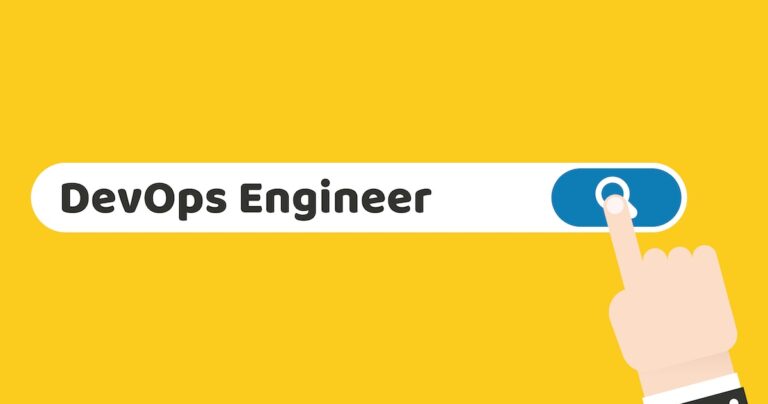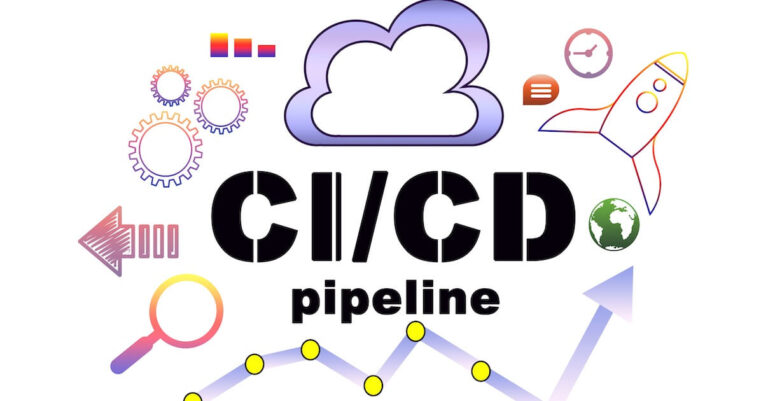Application development is a chaotic process with multiple teams having preferences of tools working on software artifacts and making it to be pushed to the production server without a technical glitch. Achieving experience in releasing software like this is tougher said than done, but it is 100% possible with the right talent of a DevOps engineer.
According to the stack overflow 2022 developer survey, developers from across the world have reported themselves to be more than one type of engineer. They are actively performing different roles within a project, such as DBAs, Cloud Infrastructure Engineers, Site Reliability Engineers, Security Professionals, and others.
Developers are wearing multiple hats and becoming the backbone of enterprise solutions by solving real-time problems of their IT infrastructure and solutions. The market is already enormous, but it’s still changing since DevOps has become more critical than ever.
According to research undertaken by Global Market Insights, the industry’s future shows encouraging numbers. The DevOps industry, for instance, was over $4 billion in size in 2019 and is anticipated to increase at a CAGR of over 20% between 2020 and 2026.
In DevOps, some exceptional things are also happening. For example, according to Gartner, over 85% of organizations will adopt a cloud computing strategy by 2025, and 95% of new digital workloads will take place on cloud platforms, a 30% increase from 2021.
DevOps has blossomed in many organizations, and implementing DevOps principles is helping them reap the following benefits:
- Improve the quality of software deployments
- Release software more frequently
- Improve company-wide cooperation and collaboration
- Improve the quality of code production
As DevOps has become a more established function in modern application development, release management, and maintenance activities, finding and hiring top DevOps talent has become complicated today. Not only are DevOps engineers expensive, but they can also be tough to attract and retain since today’s SDLC heavily relies on DevOps practices, deep Linux administration, and Cloud practices.
If you are already aware of all the industry insights and shifting to hiring technical talent of DevOps but are still determining how to begin your hiring for DevOps engineers or what skills to look for in a DevOps engineer, you have come to the right place. Consider this blog post as your personal guide, as we will cover all the ins and outs of hiring DevOps engineers.
Why Do You Need a DevOps engineer?
DevOps is neither technology nor a tool. It is a concept that addresses the gap between people, processes, and technology an organization uses to upkeep its software delivery lifecycle pipeline. You may need a DevOps engineer to streamline your company culture of how applications have been developed and deployed in today’s customer-centric world, or you may want to streamline your tools and frameworks to enhance operational excellence. Let’s understand in detail how DevOps implementation strategy works within an organization.
Support Culture Change
- If developers and operations play as separate teams, hold their knowledge to themselves, and have entirely different priorities.
- If you need help finding, hiring, and onboarding scarce technical talent for applications, data, and cloud initiatives.
- If you are experiencing business/product velocity, operational efficiency, innovation,
and adaptability issues. - If you can’t keep up with updates, implementing new features, and providing users with a stable experience no matter how high the traffic is.
Support Technology Change
- Shorter development cycles and faster innovation.
- Reduced deployment failures, rollbacks, and time to recover.
- Reduced costs and IT headcount.
- Stable operating environment.
- Improved continuous integration and continuous delivery.
What Problems Do DevOps Engineers Solve?
When there was no concept of DevOps, software development teams comprised network engineers, security engineers, system administrators (Unix and Linux admins), automation engineers, and developers. These separate teams were collaborating and communicating for project development. Over the period of time, these engineering positions and practices have evolved into a single profile that is called DevOps engineers.
In short, DevOps are masters of Linux and are skilled in creating highly distributed systems on any cloud platform with microservices, containers, Kubernetes, or virtual on-premise servers. They automate infrastructure tasks via Infrastructure code using scripting and maintain and configure a cluster of servers. They also create and sustain CI/CD pipelines, patch servers, and secure cloud services.
And top of it, they are cloud service experts having certifications in significant cloud services. They know how to set up complete infrastructure and look after cloud resources, for example, EC2 instances, DynamoDB, VPC peering, and others.
Besides proprietary tools, they also make themselves experts in open-source tools such as Jenkins, Bitbucket, Ansible, Prometheus, Garfana, Nagios, and many others. They took SRE roles and support on-call regarding monitoring or observability needs for system troubleshooting or recovering it from any failure.
Have you understood better the need for a DevOps engineer in your company? Bold tech leaders or software developers frequently take on these roles (DevOps tasks). You should advance your DevOps plan and hire a DevOps engineer rather than arbitrarily using your software developer, who was primarily educated in developing features.
DevOps Engineer Principal Tasks and Responsibilities
Now that you understand how DevOps has come into the picture in software development let’s know the specific tasks being performed by them on a day-to-day or project basis.
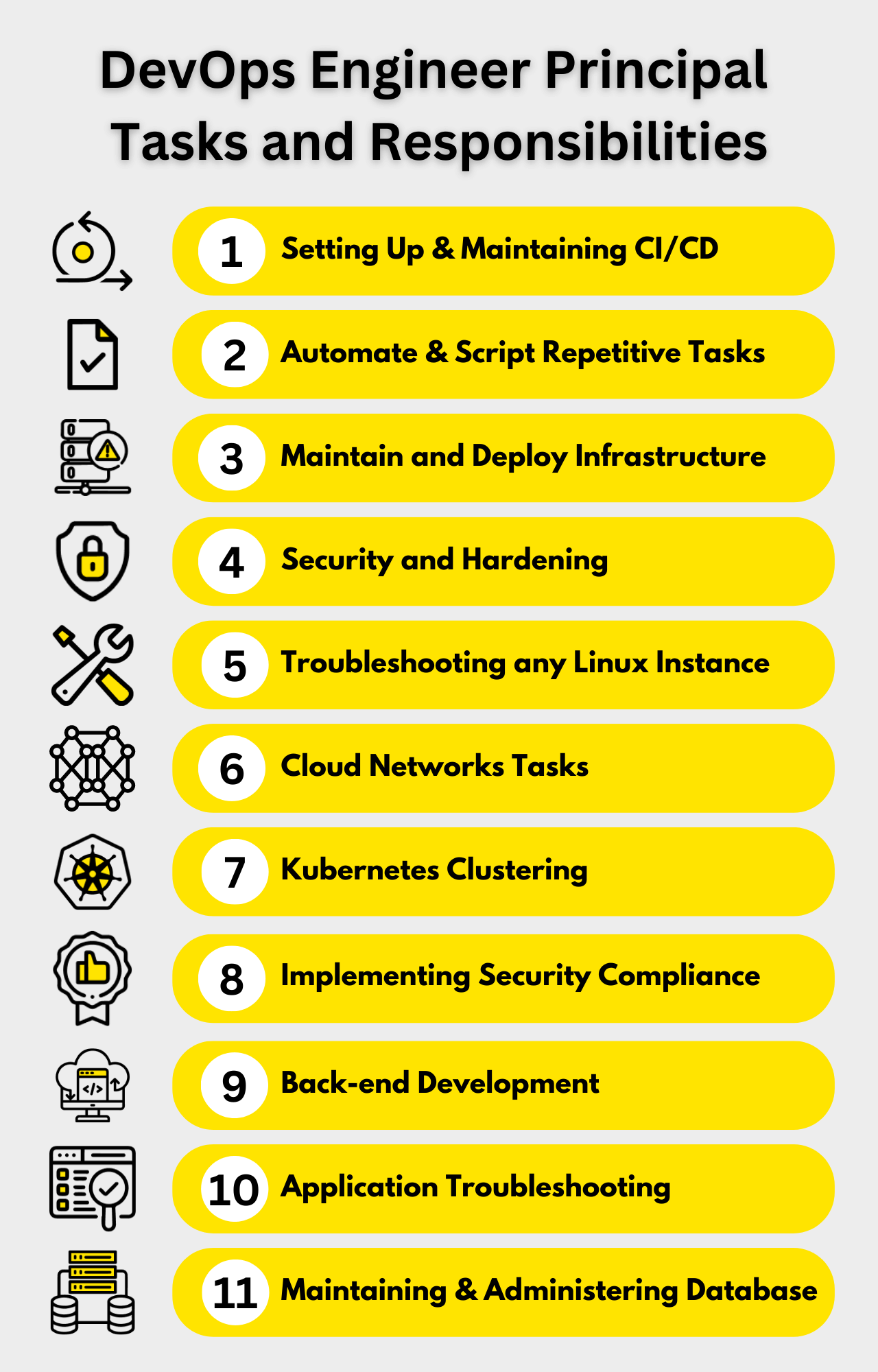
1. Setting Up and Maintaining Continuous Integration and Continuous Deployment (CI/CD)
What teams want are lower deployment time and faster go-to-market. A DevOps engineer helps them achieve this goal by setting up and maintaining their continuous integration and deployment pipeline. They can find ways to decrease the deployment time by adding or replacing CI/CD tools like Jenkins, Gitlab, Travis CI, AWS Codepipeline, and other tools.
2. Automate and Script Repetitive Tasks
One of the most significant advantages of DevOps over agile is automation. DevOps engineers can help you automate as many repetitive tasks as you want. Whether it’s servers, containers, infrastructure, database, cronjobs, or others, they will use scripts of Python or Bash to run, diagnose, and maintain your complete application and infrastructure environment that provide you speed to reach the market faster and time for innovation.
3. Maintain and Deploy Infrastructure
DevOps instill confidence that your application will work everywhere by bringing environment parity with the help of infrastructure as code principles. They bring knowledge and expertise of Terraform, AWS CloudFormation, and other tools to launch new production environments irrespective of your on-prem, public, hybrid, or multi-cloud deployments. With the help of templates or manifests, they also help you deploy frequently changing infrastructure from a single point and maintain environment parity and infrastructure stability.
4. Security and Hardening
DevOps also possess skills of enhancing security posture for your servers and networks through various means such as SSH keys, permission controls, SSL certificates, encryption, security audits, hardening of servers, and many others that result in a much more secure server operating environment.
5. Troubleshooting any Linux instance
DevOps engineers are Linux gurus. Data centres, whether on-premises or cloud, are built on Linux servers. You don’t need a separate Linux specialist to look into DNS, networking, servers, firewalls, log issues, or others. DevOps engineers have the skills and expertise to tackle all the problems.
6. Cloud Networks Tasks
Networking problems sometimes impact a system in strange ways. Therefore, network troubleshooting skills are invaluable for any organization. DevOps does not know cloud networking but also performs the role of a system engineer and troubleshoots networking issues, deploys VPN services, and creates virtual networks for project development.
7. Kubernetes Clustering
DevOps engineers can create a Kubernetes cluster in production with the best practices. If you want the Kubernetes cluster to be created on Amazon EKS, Google KS, Azure KS, or installed on-premise, he keeps the stress away.
8. Implementing Security Compliance
Whether you want to implement HIPAA or need to adapt to PCI or SOC2 regulations or ISO27001 or others, DevOps engineers help you with it. Besides that, they can help you adopt DevSecOps in your DevOps pipeline, penetration and vulnerability assessments, patching vulnerabilities, and disaster recovery strategies.
9. Back-end Development
DevOps engineers are also good with programming languages and frameworks, for example, Python, Java, and Boto3. They help you create, configure, and manage your cloud deployments with AWS and other platforms.
10. Application Troubleshooting
DevOps engineers can help troubleshoot your web application, be it Java, Node.js, Laravel, go, or Python. Though it’s a software engineer’s responsibility, DevOps professionals can understand the ins and outs of everything related to code issues and deployments. It helps you figure out the issues and align them with the right tech team to look after and fix errors.
11. Maintaining and Administering Database
DevOps engineers are not Database experts but possess proficient knowledge to troubleshoot, create and build database clusters. They are good at creating and managing cloud databases, such as RDS replicas, PostgreSQL, MongoDB sharding, etc.
Therefore, DevOps engineers look after every aspect of SDLC, but it’s important to note that they perform not all of these tasks. 50-70% of the above functions are suitable for an excellent senior DevOps Engineer.
What skills are required while hiring DevOps Engineers?
As we discussed earlier, a DevOps profile is a sum of multiple engineering profiles that used to come and handle complete SDLC jobs, therefore, a DevOps engineer needs to have following skills in their bucket.
- System Administration: Linux, Ubantu, etc.
- Programming Languages: Python, Java, YAML, etc.
- Networking: TCP/IP, UDP, HTTPS, etc.
- CI/CD Pipeline: Jenkins, Bitbucket, Travic, CircleCI, etc.
- Orchestration: Kubernetes, Swarm, OpenShift, etc.
- Monitoring: Nagios, Prometheus, Grafana, etc.
- Cloud: AWS, Azure, Google, etc.
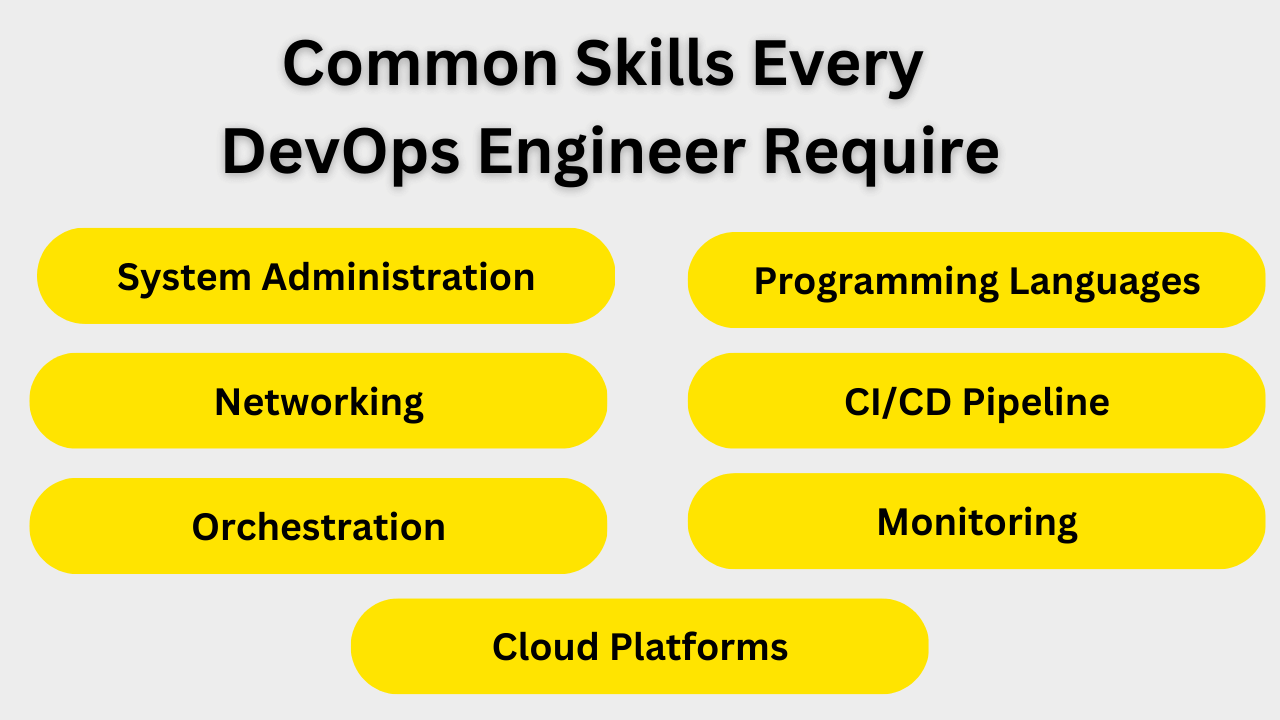
Types Of DevOps Services You Can Outsource?
Although DevOps takes on multiple roles and responsibilities, only some organizations operate in the same DevOps maturity model. Depending on an organization’s DevOps adoption journey, they need DevOps solutions. Some may need DevOps consulting to begin with, others may require technical expertise like setting up CI/CD pipelines or updating CI/CD pipelines to leverage evolving technologies and tools for agility and resilience, many can need help with automating monotonous tasks, and the use-case can vary. Therefore, cloud consulting companies provide different DevOps services that can be outsourced based on an organization’s specific needs. Let’s briefly look at popular DevOps outsourcing services and solutions.
Personalized DevOps Consultation
You can hire DevOps engineers and avail of DevOps consulting for in-depth assessment of the business processes. Having an evaluation from an experienced professional helps you find out the present development policies, practices, and the approach followed in problem-solving collaboration. This kind of information enables you to keep track of the most important aspects of DevOps that help them establish and achieve exactly what is needed as a result of the implementation of this methodology. A comprehensive assessment is a key to making the most of the benefits of hiring a DevOps consulting company, and this is one of the best reasons to follow the approach. The assessment not only helps provide helpful information about the development practices but also gives a good indication of the complete state of the organization.
Enterprise DevOps Solutions
To support both cloud-native and legacy applications, you can hire enterprise DevOps that help you manage the entire lifecycle of either application. A DevOps engineer can help you take advantage of modern cloud-native patterns and technologies like Kubernetes while updating and managing your legacy applications which are still not containerized and converted into microservices. Whether running your applications on hybrid or multi-cloud, you can easily manage your delivery pipelines across mixed environments of on-prem, private, and public cloud, multi-cloud, and edge infrastructure.
Dedicated DevOps Developers
You can hire dedicated DevOps engineers who are experts in writing great code for business layers and setting up application configuration and infrastructure for end-to-end product development and management. YAML, JSON, and Python are the top programming languages used to write templates and manifests for on-prem and cloud platforms. Hiring DevOps developers help you leverage your skills and speed up the development and deployment process.
DevOps Automation
You can hire DevOps engineers to automate your complete delivery cycle and ensure that your deployments and rollbacks are performed in a click to minimize risks and increase diversity and productivity.
DevOps Configuration & Integration
When you outsource DevOps engineers, you also gain the expertise to manage your lean operations through DevOps configurations and integration, such as CI/CD pipeline. They help you adopt only the best practices and tools based on your project requirements and evolving needs.
DevOps PAAS (Platform-As-A–Service)
DevOps developers help you select the best options to strategize, plan, and execute a business promotion process with the help of the PaaS mechanism. PaaS technologies have many advantages in developing modern applications, such as on-demand access to state-of-the-art data centers, hardware, and operating systems. As you will not need to waste time setting up/maintaining the core stack, integrating PaaS provides a cost-effective way of developing applications and ensures faster time to market.
DevOps Hiring Models And Cost Calculations
One of the critical considerations in the IT outsourcing process is determining the right contractual arrangement to use. It is essential to maintain and have a lasting client-vendor relationship. Deciding contractual arrangements enables altering financial bottom lines and ultimately affect the final deliverables. You can use the DevOps hiring or another software engineer hiring model based on business requirements and standard corporate processes. Remember, these models involve making different assumptions regarding the project and taking different approaches to project development and deliverables. Let’s explore them one by one and decide which one is best in which case scenarios.
Fixed Cost Project
In the fixed-price model, you define your business requirements and expectations that software development vendors like Successive need to create a detailed project scope, estimate deadlines, and cost accordingly. As it’s a fixed-cost model, estimation forms the basis of a fixed-price contract as a billing arrangement, where a cloud consulting company explicitly outlines the work scope, cost, and timelines of a project through its quotation to you. In a fixed cost model, the payment schedule can be in installments with an initial down payment, other payments spread across project phases or milestones, and final payment on project completion. The most crucial thing to note is that the complete project cost is fixed and determined upfront. Benefits of Fixed Cost:
- Since the entire project cost is decided initially, you and your vendor get a clear budget projection.
- You get predictability of outcomes, and the project is completed on time and within budget.
- Predetermining project details, budget allocation, and payment schedules streamline project management.
Time and Material
The time and Material model addresses gaps within the Fixed price model by introducing flexible contractual agreements. In this mode, your vendor charges you based on an hourly cost of the time that will be spent on development efforts and the cost of materials. This pricing and collaboration model includes an hourly, weekly, or monthly quotation of resources, terms of resource procurements, and timeline agreements. It also addresses application development intricacies such as dynamic requirements and upgrades or maintenance as unknown project variables. Over the Fixed cost model, time and material are usually preferred as its contract initially discusses and educates dynamic changes that could come up. Benefits of Time and Material:
- Going with time and material allows faster project setup.
- You get flexibility as you can extend the project scope, add new requirements, test user feedback to modify or add new features, or even pivot the project in a different direction as your needs change.
- You participate actively in decision-making during the project. Therefore, you experience better control over the development process and improved quality assurance.
- You build better relationships with the team or the vendor. As you rely on your extended professional or team and trust on them for such working arrangements, the vendor feels motivated to deliver as per the scope and looks to maintain their reputation in your eyes.
Staff Augmentation
Staff augmentation is another outsourcing model enabling companies to hire talented resources temporarily. When there are short-term project requirements, you can augment staff for a specific time period. It gives you complete control over your team and gets the job done the way you want it to be done. You can hire a resource full-time and deploy him to your end location for better operations and efficiency. Benefits of staff augmentation:
- It fills the gap in your workforce and expands your team with the right skill you need immediately.
- The model allows you to hire tech talent globally. But since he fills the gap for temporary needs, you pay for what you need for as long as you need.
- It saves time as you can onboard the resource immediately and avoid time spent recruiting new employees.
These models are usually followed, analyzed, and contracted in an IT resource hiring model to support end-to-end project development requirements. To make the best of it, you must discuss your software requirements in detail and keep transparency from the beginning since an experienced company can help you find optimal ways to balance speed, performance, availability, and cost. Though you discuss everything in detail while collaborating with your vendor, additional charges are incurred when you opt for solutions such as current state analysis (CSA) and proof of concept (POC). Some vendors make it a part of the contract, but some exclude it from the contract and charge for it when you need it. If you don’t have the right skills and expertise in-house to perform a current state analysis of your system or test a new breakthrough solution with proof of concept, you can take the help of your vendor.
Why Hire DevOps Engineers From Successive Cloud?
Hire DevOps Developers from Successive Cloud for cost-effective solutions and on-time delivery and deployment.
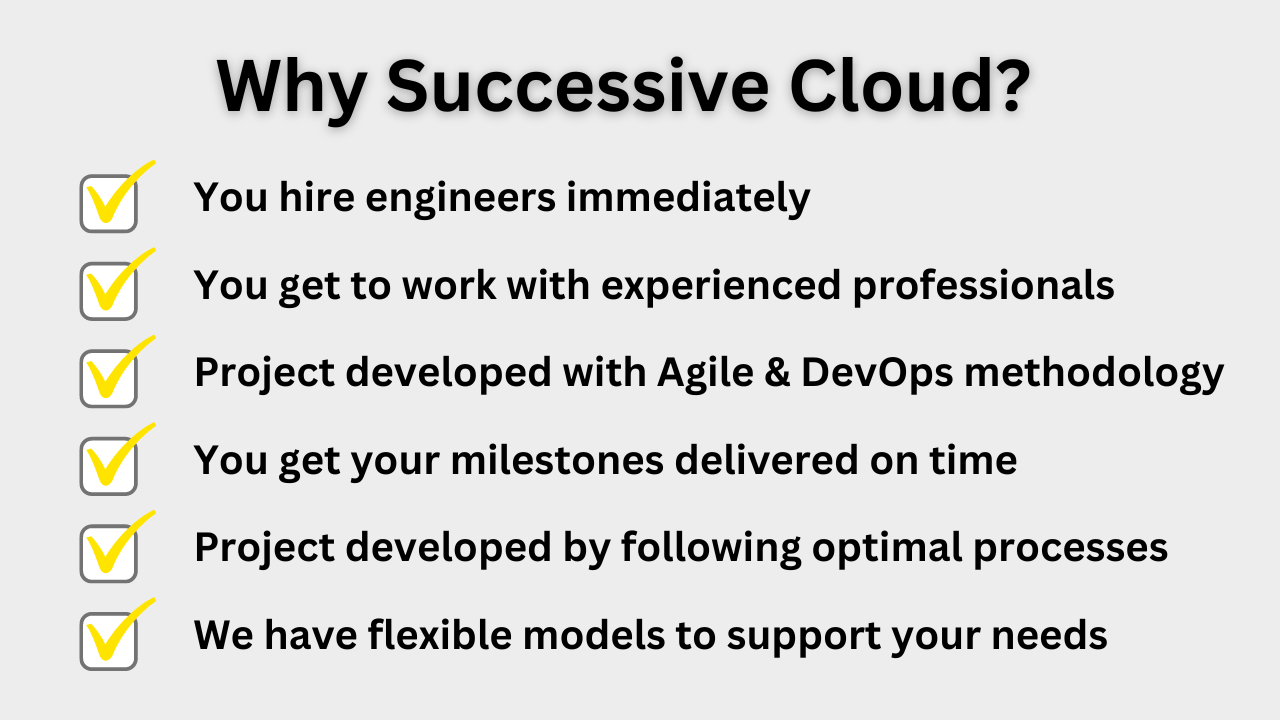
Immediate Availability
Whether it’s a last-minute AWS or Azure app project, a just-in-time cost estimate, or meeting frequently changing requirements that you only imagined possible, our engineers have the strategy and expertise to make it real.
Experienced Team
Balancing form and function through expert DevOps services, we’ll create a delightful experience for setting up cloud infrastructure that promotes scalability, agility, and resilience.
Agile Methodology
We build platforms that are agile and adaptive. We like accepting challenges. We offer expert DevOps consulting and solutions for on-prem, hybrid, public, and multi-cloud environments. We keep a tap on the advanced trends, developments, and deployments, so you don’t have to.
Timely Delivery
Your deadline is our deadline. We acknowledge your budget commitments as our own. We work with you to define a clear scope of work and distribute them into small milestones and work commitments to achieve the desired outcome on time. You can augment more staff as needed to meet delivery timelines if required, even at the last minute.
Optimal Processes
Our solutions architects work one-on-one with your budget requirements in mind. We help you to design and build on a foundation of accuracy, quality, and perfect onboarding experiences. We lead projects to great heights and manage them safely back home.
Flexible Models
We know not all roads are smooth and that not all plans are flawless. We’ll approach any cloud project, be it application modernization, cloud migration, containerization, microservices, or other virtualization, through an approach that eliminates any disruption to your business.
Conclusion
We are aware that finding and hiring DevOps experts might be challenging, but it is possible. Given that they are Linux and cloud services experts, it is best to have a DevOps engineer on the team. You must remember that each DevOps has the expertise and technical proficiency in a particular language if you want to recruit a skilled DevOps engineer. Remember to consider candidates’ soft attributes, which will guarantee that they can succeed in the role.
You may get in touch with Successive Cloud and consult for DevOps implementation strategy and discover the best DevOps developer for your projects. Now that you know how to choose the top DevOps experts, we have a pool of talented developers, and the hiring procedure is simple and quick. Get in touch with us today!
